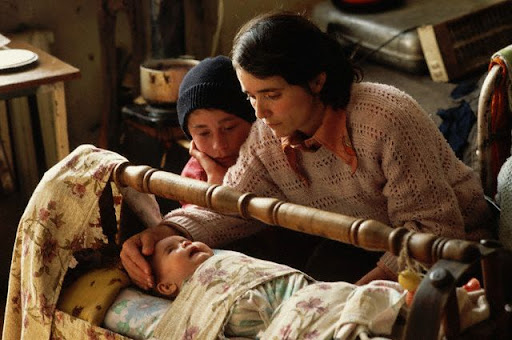Chet Atkins & Hank Snow ~ Limbo Rock
 UN Security Council In Limbo After Russia’s Recognition Of Breakaway Provinces
UN Security Council In Limbo After Russia’s Recognition Of Breakaway Provinces by Nikola Krastev
UNITED NATIONS -- The UN Security Council did not take immediate action overnight after Moscow’s surprising recognition of Abkhazia and South Ossetia as independent states. It is clear, though, that the silence at the world’s body highest executive organ is only a prelude before politically charged sessions resume.
Both earlier draft resolutions on the crisis in Georgia, introduced by France and Russia respectively, have now become irrelevant in view of Russia’s recognizing Georgia’s separatist regions.
Michele Montas, the spokeswoman for the UN Secretary General, said that Ban Ki-Moon was awoken at 4:00 a.m. on August 26 to receive the official letter from Russia’s UN Mission informing him that Moscow is recognizing Abkhazia and South Ossetia as independent entities. The secretary general, she said, is fully aware of the obstacles these developments will create in the work of the Security Council and UNOMIG (UN Observer Mission In Georgia).
“Today’s developments may have wider implications for security and stability in the Caucasus," Montas said. "The secretary general regrets that ongoing efforts to find a common solution on the way forward on the crisis in Georgia within the Security Council may be complicated.”
Asked how recognizing the independence of Georgia’s separatist regions fits into the “six principles” agreement between the French and Russian presidents, Churkin repeated that the six principles are fully observed by Russia and its military on the ground in Georgia.
"On August 12, President [Dmitry] Medvedev and President [Nicolas] Sarkozy announced the six principles which contained a direct reference to the starting of international discussions on the status of Abkhazia and South Ossetia. Then it was dropped," in keeping with a request by Sarkozy, Churkin said. "So, they were the ones who immediately started walking away from this, I think, diplomatic opportunity.”
'Future Leaders Of Georgia'
In his statement, Churkin at least twice made reference to “the future leaders of Georgia,” and never referred to the democratically elected leader of Georgia as the president. Listening to Churkin, one could hardly avoid the feeling that Moscow is firmly bent on regime change in Tbilisi.
“That has created a certain dynamic and we’ve been warning about that since the unilateral declaration of independence of Kosovo came on the horizon," Churkin said. "We have been warning that it is providing additional emphasis to all those who are working for their independence." He continued: "I personally believe that Abkhazia and South Ossetia have many more reasons and much better legal ground for their independence than Kosovo. So, they have a much stronger case.”
Churkin flatly dismissed speculation that by recognizing the two regions, Moscow may be signaling the beginning of a new Cold War. And he rejected the idea that Moscow will now look for justification to annex South Ossetia, which borders the Russian province of North Ossetia.
Irakli Alasania, Georgia’s permanent representative to the UN, held his own press conference, during which he frequently referred to Russia as an “aggressor.” He said that now no dialogue is possible between Moscow and Tbilisi.
“This step has no international legal consequence," Alasania said. "It has no impact on the internationally established borders of Georgia and will not change in any way the international community's stand on the sovereignty, territorial integrity, and independence of Georgia. Obviously the Russian Federation has through this senseless act eliminated itself as a viable peacekeeper for this conflict.”
“If these actions are now accepted by the international community, it will mean that foreign forces and groups around the world can use violence and ethnic cleansing to achieve their aims and be rewarded with independence," he said. "That means that third parties can arm, sustain, and direct those groups in order to change the boundaries on the world’s map. This is unacceptable to Georgia.”
Confusion And Surprise
Churkin said that so far he has no instructions from his government on how to proceed in the Security Council. He also said that to the best of his knowledge, none of his colleagues has any specific instructions yet. The confusion over the speed and the surprise of Moscow’s recognition of Abkhazia and South Ossetia were apparent at the UN.
Alasania acknowledged that with Russia being a permanent, veto-holding member of the Security Council, it will be practically impossible to carry through any decision not to Moscow’s liking.
“When we have an aggressor state as a permanent member of the Security Council, it is very hard to envisage any meaningful outcome or action at the Security Council," Alasania said. "In that regard I am going to have a meeting today [August 26] with UN Secretary General Ban Ki-moon. I am in constant consultation with the other permanent members of the Security Council and these consultations will determine which way we are going to go,” he said.
Alasania said that Tbilisi has already started building a coalition against Russia’s “illegal” acts through diplomatic, economic, and financial means, without any plans for the use of force.


No comments:
Post a Comment